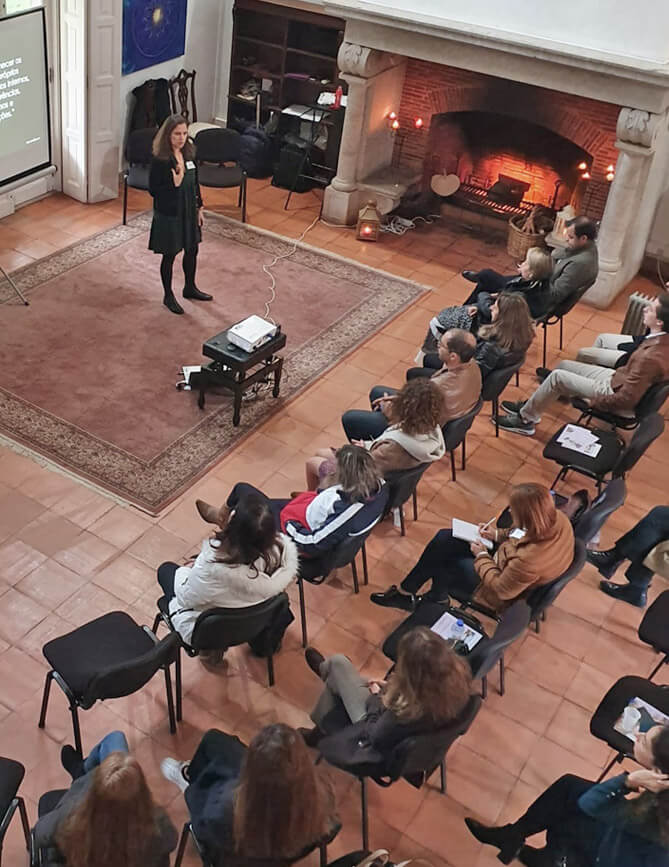Mindfulness is the ability to be deliberately present in the moment, aware of where we are, what we are doing, and who we are with. Observing what happens within us and around us with an attitude of curiosity, kindness and non-judgment. It is a basic human capacity available to everyone, but more easily accessible if we practice it.
This ability can be trained in a dedicated way, planning a specific time for practice (compared to physical training, it will be like going to the gym) and in an integrated manner, including this ability and quality of attention in the tasks we already do every day (like walking the stairs instead of taking the lift).
Dedicated practice
Nowadays we have fewer natural breaks in our daily lives. It is therefore important to deliberately plan times when we can stop. Dedicated practice is usually a meditative practice where the goal is to observe the present moment as it is without judgment. We can start for 5 to 10 minutes and extend this period over time. No specific material or location is required, but it is important to be comfortable and find a quieter and more reserved space. Breathing is often used as an anchor for the training of our attention in the present moment, but there are several types of mindfulness meditation in which we train our attention more focused or open, observing what happens inside us and around us. Although it requires a specific amount of time, we quickly realize that dedicated (or formal) practice supports and strengthens our ability to practice more informally during the different situations of our day.
Integrated Practice
A Harvard University study by Matthew A. Killingsworth and Daniel T. Gilbert concluded that about 47% of the time we are thinking of something different from what we are doing and that this mind wandering often makes us more unhappy. With integrated mindfulness practice the goal is to bring our attention to what we are actually doing in the moment. And do it with curiosity, kindness and avoiding judgment. We can deliberately bring this quality of attention to the various situations of the day: when drinking a coffee, pay attention to taste, smell, temperature…; when taking a shower focus on the sensation of body water, temperature, touch…; when talking to someone, effectively focus on what the other person tells me. It’s simple, but it takes practice. At any time of the day, feel what it would be like to pay more attention and allow yourself to experience what is present, not trying to change anything, just being and feeling

